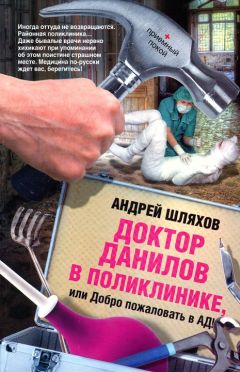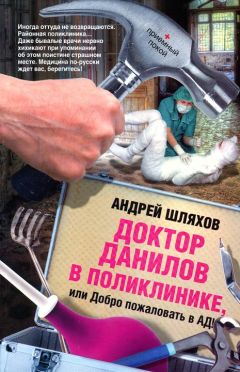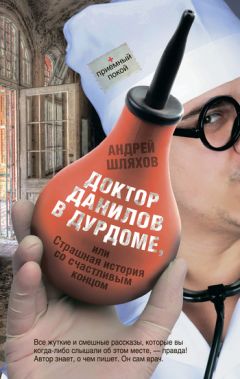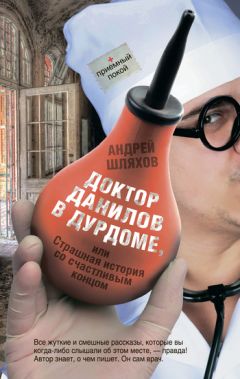Anthony Powell - At Lady Mollys

Обзор книги Anthony Powell - At Lady Mollys
Anthony Powell
At Lady Molly's
1
WE had known General Conyers immemorially not because my father had ever served under him but through some long-forgotten connexion with my mother’s parents, to one or other of whom he may even have been distantly related. In any case, he was on record as having frequented their house in an era so remote and legendary that, if commission was no longer by purchase, regiments of the line were still designated by a number instead of the name of a county. In spite of belonging to this dim, archaic period, traces of which were sometimes revealed in his dress and speech — he was, for example, one of the last to my knowledge to speak of the Household Cavalry as ‘the Plungers’—his place in family myth was established not only as a soldier with interests beyond his profession, but even as a man of the world always ‘abreast of the times’. This taste for being in the fashion and giving his opinion on every subject was held against him by some people, notably Uncle Giles, no friend of up-to-date thought, and on principle suspicious of worldly success, however mild.
‘Aylmer Conyers had a flair for getting on,’ he used to say, ‘No harm in that, I suppose. Somebody has got to give the orders. Personally I never cared for the limelight. Plenty of others to push themselves forward. Inclined to think a good deal of himself, Conyers was. Fine figure of a man, people used to say, a bit too fond of dressing himself up to the nines. Not entirely friendless in high places either. Quite the contrary. Peacetime or war, Conyers always knew the right people.’
I had once inquired about the General’s campaigns.
‘Afghanistan, Burma — as a subaltern. I’ve heard him talk big about Zululand. In the Soudan for a bit when the Khalifa was making trouble there. Went in for jobs abroad. Supposed to have saved the life of some native ruler in a local rumpus. Armed the palace eunuchs with rook rifles. Fellow gave him a jewelled scimitar — semi-precious stones, of course.’
‘I’ve seen the scimitar. I never knew the story.’
Ignoring interruptions, Uncle Giles began to explain how South Africa, grave of so much military reputation, had been by Aylmer Conyers turned to good account. Having himself, as a result of his own indiscretions, retired from the army shortly before outbreak of war in the Transvaal, and possessing in addition those ‘pro-Boer’ sentiments appropriate to ‘a bit of a radical’, my uncle spoke always with severity, no doubt largely justified, of the manner in which the operations of the campaign had been conducted.
‘After French moved over the Modder River, the whole Cavalry Division was ordered to charge. Unheard of thing. Like a gymkhana.’
‘Yes?’
For a minute or two he lost the thread, contemplating the dusty squadrons wheeling from column into line across the veldt, or more probably assailed by memories of his own, less dramatic, if more bitter.
‘What happened?’
‘What?’
‘What happened when they charged?’
‘Cronje made an error of judgment for once. Only sent out detachments. Went through to Kimberley, more by luck than looking to.’
‘But what about General Conyers?’
’Got himself into the charge somehow. Hadn’t any business with the cavalry brigades. Put up some excuse. Then, day or two later, went back to where he ought to have been in the first place. Made himself most officious among the transport wagons. Line of march was like Hyde Park at the height of the Season, so a fellow who was in the advance told me — carriages end to end in Albert Gate — and Conyers running about cursing and swearing as if he owned the place.’
‘Didn’t Lord Roberts say something about his staff work?’
‘Bobs?’
‘Yes.’
‘Who said that, your father?’
‘I think so.’
Uncle Giles shook his head.
‘Bobs may have said something. Wouldn’t be the first time a general got hold of the wrong end of the stick. They say Conyers used to chase the women a bit, too. Some people thought he was going to propose to your Great-aunt Harriet.’
Other memories, on the whole more reliable, gainsay any such surmise regarding this last matter. In fact, Conyers remained a bachelor until he was approaching fifty. He was by then a brigadier-general, expected to go much further, when — to the surprise of his friends — he married a woman nearly twenty years younger than himself; sending in his papers about eighteen months later. Perhaps he was tired of waiting for the war with Germany he had so often prophesied, in which, had it come sooner, he would certainly have been offered high command. Possibly his wife did not enjoy following the drum, even as a general’s lady. She is unlikely to have had much taste for army life. The General, for his own part, may have felt at last tired of military routine. Like many soldiers of ability he possessed his eccentric side. Although no great performer, he had always loved playing the ’cello, and on retirement occupied much of his time with music; also experimenting with a favourite theory that poodles, owing to their keen natural intelligence, could profitably be trained as gun dogs. He began to live rather a social life, too, and was appointed a member of the Body Guard; the role in which, from early association of ideas, I always think of him.
‘Funny that a fellow should want to be a kind of court flunkey,’ Uncle Giles used to say. ‘Can’t imagine myself rigged out in a lot of scarlet and gold, hanging about royal palaces and herding in and out a crowd of young ladies in ostrich feathers. Did it to please his wife, I suppose.’
Mrs. Conyers, it is true, might have played some indirect part in this appointment. Eldest daughter of King Edward VII’s friend, Lord Vowchurch, she had passed her thirtieth birthday at the time of marriage. Endless stories, not always edifying, are — or used to be — told of her father, one of those men oddly prevalent in Victorian times who sought personal power through buffoonery. His most enduring memorial (to be found, with other notabilities of the ’seventies, hanging in the damp, deserted billiard-room at Thrubworth) is Spy’s caricature in the Vanity Fair series, depicting this high-spirited peer in frock-coat and top hat, both grey: the bad temper for which he was as notorious at home as for his sparkle in Society, neatly suggested under the side whiskers by the lines of the mouth. In later years Lord Vowchurch grew quieter, particularly after a rather serious accident as a pioneer in the early days of motoring. This mishap left him with a limp and injuries which seem to have stimulated that habitual banter, rarely good-natured, for which he had often been in trouble with King Edward, when Prince of Wales; and, equally often, forgiven. His daughters had lived their early life in permanent disgrace for having, none of them, been born a boy.
My parents never saw much of the General and his wife. They knew them about as well as they knew the Walpole-Wilsons; though the Conyers relationship, with its foundations laid in a distant, fabled past, if never more intimate, was in some way deeper and more satisfying.
Like all marriages, the Conyers union presented elements of mystery. It was widely assumed that the General had remained a bachelor so long through conviction that a career is best made alone. He may have believed (like de Gaulle, whom he lived to see leading the Free French) in a celibate corps of officers dedicated like priests to their military calling. He wrote something of the sort in the United Service Magazine. This theory rested upon no objection to the opposite sex as such. On the contrary, as a young officer in India and elsewhere he was judged, as Uncle Giles had indicated, to have enjoyed a considerable degree of quiet womanising. Some thought that ambition of rather a different sort — a feeling that he had never fully experienced some of the good things of life — had finally persuaded him to marry and retire. A few of the incurably romantic even supposed him simply to have ‘fallen in love’ for the first time on the brink of fifty.
General and Mrs. Conyers seemed to ‘get on’ as well, if not better, than many married couples of a similar sort united at an earlier age. They moved, on the whole, in a circle connected, it might be said unpretentiously (because nothing could have been less ‘smart’, for example in Chips Lovell’s use of the term, than the Conyers ménage) with the Court: families like the Budds and Udneys. In the limited but intense — and at times ornamental — preoccupations of these professional courtiers, the General seems to have found an adequate alternative to a life of command.
They had an only daughter called Charlotte, a rather colourless girl, who married a lieutenant-commander in the Navy. I used sometimes to have tea with her when we were both children.
In 1916, towards Christmas, at a time when Mrs. Conyers was assembling ‘comforts’ for troops overseas (still at this period in more amateur hands than the organisation that employed Uncle Giles after America came into the war) I was taken — passing through London on the way home from school — to her flat near Sloane Square. My mother paid the call either to add some knitted contribution to the pile of socks, scarves and Balaclava helmets lying about on chairs and sofas, or to help in some matter of their distribution. In the corner of the room in which all these bundles were stacked stood the ’cello in a case. Beside it, I at once noticed a large photograph of the General, carrying a halberd and wearing the plumed helmet, swallow-tailed coat and heavy gold epaulettes of a Gentleman-at-Arms. That is why I always think of him as a statuesque figure at leveés and court balls, rather than the man of action he must for the greater part of his life have been. Retired from the army too long for any re-employment of the first importance, he had acquired soon after the outbreak of war some job, far from momentous, though respectably graded in the rank of major-general.
We had finished tea, and I was being shown the jewelled scimitar to which Uncle Giles had referred, which was kept for some reason in the London flat instead of the small house in Hampshire where the poodles were trained. This display was made by Mrs. Conyers as some amends for the fact that Charlotte was in the country; although no apology was necessary as it seemed to me more amusing without her. I was admiring the velvet-covered scabbard, wondering whether to draw the steel from its sheath would be permissible, when the maid showed someone into the room. This new arrival was a young woman wearing V.A.D. uniform, who strode in like a grenadier. She turned out to be Mildred Blaides, youngest sister to Mrs. Conyers.
Difference of age between the two of them must have been at least that of Mrs. Conyers and her husband. This Miss Blaides, indeed, represented her parents’ final, unsuccessful effort to achieve an heir, before Lord Vowchurch’s motor accident and total resignation to the title passing to a cousin. She was tall, with a long nose, no more handsome than her sister, but in my eyes infinitely more dashing than Mrs. Conyers. Her face was lively, not unlike the mask of a fox. Almost immediately she took from her pocket an ornamental cigarette-case made of some lacquer-like substance and lit a cigarette. Such an act, especially in one so young, was still in those days a sign of conscious female emancipation. I suppose she was then about twenty.
‘Mildred is at Dogdene now,’ explained Mrs. Conyers, ‘You know the Sleafords offered their house as an officers’ hospital when the war broke out. They themselves live in the east wing. There are huts all over the park too.’
‘It’s absolute hell having all those blighters in huts,’ said Miss Blaides. ‘Some of the tommies got tight the other night and pushed one of the stone urns off the Italian bridge into the lake. It was too bad of them. They are a putrid unit anyway. All the officers wear “gorblimeys”.’
‘What on earth are those, Mildred?’ asked Mrs. Conyers, nervously.
I think she feared, after asking the question, that they might be something unsuitable to mention in front of a small boy, because she raised her hand as if to prevent the exposure of any too fearful revelation.
‘Oh, those floppy army caps,’ said Miss Blaides, carelessly. ‘They take the stiffening out, you know. Of course they have to do that when they are up at the Front, to prevent bits of wire getting blown into their cocoanuts, but they might try and look properly turned out when they are over here.’
She puffed away at her cigarette.
‘I really must check all these gaspers,’ she said, flicking ash on to the carpet. ‘By now it’s got up to about thirty a day. It just won’t do. By the way, Molly Sleaford wants to come and see you, Bertha. Something about the distribution of “comforts”. I told her to look you up on Wednesday, when she is next going to be in London.’
For some reason this announcement threw Mrs. Conyers into a state of great discomposure.
‘But I can’t possibly see Lady Sleaford on Wednesday,’ she said, ‘I’ve got three committee meetings on that day and Aylmer wants me to have five Serbian officers to tea. Besides, dear, Lady Sleaford is Red Cross, like you — and you remember how I am rather wedded, through Lady Bridgnorth, to St. John’s. You see I really hardly know Lady Sleaford, who always keeps very much to herself, and I don’t want to seem disloyal to Mary Bridgnorth. I—’
Her sister cut her short.
‘Oh, I say, what a bally nuisance,’ she remarked. ‘I quite forgot about beastly old St. John’s. They are always cropping up, aren’t they? I really think they do more than the Germans to hold up winning the war.’
After voicing this alarming conjecture, she paced up and down the room, emitting from each nostril a long eddy of smoke like the trail of a ship briskly cutting the horizon. Throughout the room I was increasingly aware of the hardening of disapproval, just perceptible at first even on the immediate arrival of Miss Blaides: now not by any means to be denied. In fact a sense of positive disquiet swept through the small drawing-room so powerfully that mute condemnation seemed to rise in a thick cloud above the ‘comforts’, until its disturbing odour reached the ceiling and hung about the whole flat in vexed, compelling waves. This disapproval was on the part not only of Mrs. Conyers, but also — I felt sure — of my mother as well, who now began to make preparations to leave.
‘A blinking bore,’ said Miss Blaides, casting away her cigarette-end into the grate, where it lay smouldering on the tiles. ‘That’s what it is. So I suppose I shall have to tell Molly it’s a wash-out. Give me another cup of tea, Bertha. I mustn’t stay too long. I’ve got plans to scramble into some glad rags and beetle off to a show tonight.’
After that, we said good-bye; on my own part with deep regret. Later, when we were in the train, my mother said: ‘I think it a pity for a girl like Miss Blaides to put on such a lot of make-up and talk so much slang. I was rather interested to see her, though. I had heard so much about her from different people.’




